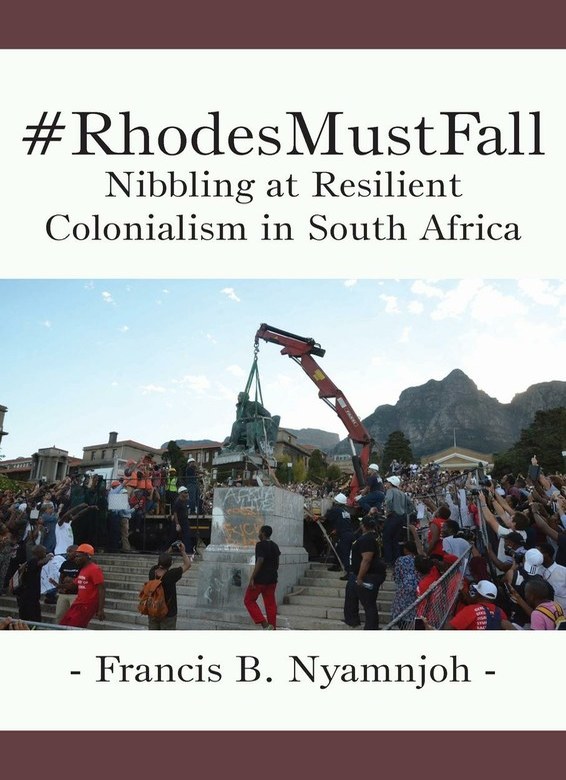written by Francis B. Nyamnjoh
Nibbling at Resilient Colonialism in South Africa
This book on rights, entitlements and citizenship in post-apartheid South Africa shows how the playing field has not been as levelled as presumed by some and how racism and its benefits persist. Through everyday interactions and experiences of university students and professors, it explores the question of race in a context still plagued by remnants of apartheid, inequality and perceptions of inferiority and inadequacy among the majority black population.
In education, black voices and concerns go largely unheard, as circles of privilege are continually regenerated and added onto a layered and deep history of cultivation of black pain. These issues are examined against the backdrop of organised student protests sweeping through the country’s universities with a renewed clamour for transformation around a rallying cry of ‘Black Lives Matter’.
The nuanced complexity of this insightful analysis of the Rhodes Must Fall movement elicits compelling questions about the attractions and dangers of exclusionary articulations of belonging. What could a grand imperialist like the stripling Uitlander or foreigner of yesteryear, Sir Cecil John Rhodes, possibly have in common with the present-day nimble-footed makwerekwere from Africa north of the Limpopo? The answer, Nyamnjoh suggests, is to be found in how human mobility relentlessly tests the boundaries of citizenship.
Check-out the Kindle Edition of the book.
| ISBN | 9789956763160 |
| Pages | 310 |
| Dimensions | 229 x 152mm |
| Published | 2016 |
| Publisher | Langaa RPCIG, Cameroon |
| Format | Paperback |
Check-out the Kindle Edition of the book.





3 comments
“Cobbling identities may be our way of preserving ourselves in new conditions of modernity. And this is the crux of the argument that Francis Nyamnjoh presents to us here”
Michael Rowlands, Emeritus Professor of Anthropology, University College London
“Francis Nyamnjoh’s book couldn’t have come at a more appropriate time; it has the prerequisite levels of urgency, immediacy and directness. But it is also imbued with a deep knowledge of the histories of decolonization in Africa… A tour de force that seamlessly blends activist scholarship, theory and memoir in one long arresting breath and significantly raises the bar on contemporary African thought and writing”
Sanya Osha, author of Postethnophilosophy
“However detached I am (or think that I am) with regard to the South African ‘Rhodes issue’, even if my vantage point is unique and (seemingly) unconnected to South Africa, Nyamnjoh’s broad, fluid, and yet systematic and structured exposé on Rhodes as a makwerekwere, the #RhodesMustFall movement, and the shaping of identities in Africa is an ingenious reminder that our fields of reference are constantly rewriting themselves, expanding.”
Moshumee Teena Dewoo, Indo-Mauritian, Doctoral Student in African Studies, University of Cape Town